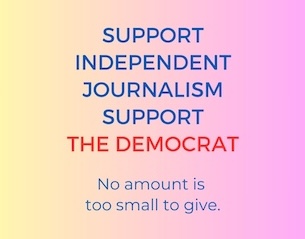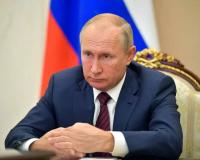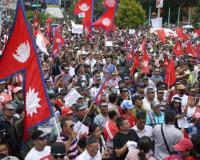- World
- Nepal Supreme Court Refuses to Issue Interim Order on Oath Taken by PM Oli
Nepal Supreme Court Refuses to Issue Interim Order on Oath Taken by PM Oli
Kathmandu: In a temporary relief for Nepal’s embattled Prime Minister K P Sharma Oli, the Supreme Court on Tuesday refused to issue an interim order on the writ petitions against his controversial oath-taking and reappointment of the seven ministers who are not lawmakers. Four writ petitions were filed in the Supreme Court of Nepal on
Kathmandu: In a temporary relief for Nepal’s embattled Prime Minister K P Sharma Oli, the Supreme Court on Tuesday refused to issue an interim order on the writ petitions against his controversial oath-taking and reappointment of the seven ministers who are not lawmakers. Four writ petitions were filed in the Supreme Court of Nepal on Monday demanding that Prime Minister K P Sharma Oli be sworn in again as he disgraced the office of the President by refusing to repeat all the words she recited during the oath-taking ceremony.
The Supreme Court has refused to issue an interim order on the writ petitions on the issue of Oli’s oath and reappointment of the seven ministers who are not lawmakers. However, the apex court has told the Office of the President and the Office of the Prime Minister and Council of Ministers to come up with written responses within 15 days regarding the oath taken by the prime minister on Friday, The Kathmandu Post reported.
“On the oath of the prime minister and ministers, the final decision will be taken after the written response of the defendants so there is no need to issue an interim order now as demanded by the petitioners, stated the order of the Supreme Court after its preliminary hearing on Tuesday. President Bidya Devi Bhandari administered the oath of office and secrecy to Oli as the prime minister at a scaled-down ceremony at Shital Niwas, the presidential palace, on Friday.
During the oath-taking ceremony, Oli, the 69-year-old Chairman of the Communist Party of Nepal-(Unified MarxistLeninist), omitted the word vow when the President recited it, besides in the name of God. I will take oath in the name of the country and the people, Oli, who has become Nepal’s prime minister for the third time, said, while President Bhandari mentioned God, country and the people.
All four writ petitioners demanded on Monday that Oli take another oath of office and secrecy as the one taken on Friday was illegal, The Kathmandu Post reported on Monday. Senior advocate Chandra Kanta Gyawali and advocates Lokendra Oli and Keshar Jung KC have registered a joint writ while advocates Raj Kumar Suwal, Santosh Bhandari and Nawaraj Adhkary have registered separate writs on the same issue.
The petitioners claim that the prime minister disgraced the office of the President by saying it is not necessary even when the President repeated the word twice, the report said. They have demanded that all the actions of the prime minister be declared null and void until he takes the oath again, it said.
The petitioners said the prime minister told the president that a phrase of the oath – “I solemnly and sincerely pledge”- was not necessary and such an utterance by the prime minister during the swearing-in ceremony undermined the prestige of the President’s Office. The petitioners have demanded that the court ask Oli to retake the oath of office and secrecy and bar him from working as the Prime Minister until he is sworn in again, the report said.
The petitioners also urged the court to order the government to enact a federal law governing the process related to the swearing-in of the prime minister and ministers. They also seek the dismissal of seven newly-appointed ministers on constitutional grounds.
Arguing that when a minister is reappointed, he or she needs to be a member of federal parliament, the writ demanded the dismissal of ministers, terming their reappointment a violation of the Constitution, My Republica website reported. Seven ministers, who are not members of the federal parliament, had taken the oath of office and secrecy for the second time on Friday against the existing constitutional provisions, the report said. According to a Supreme Court official, the hearing on the writs has been scheduled for Tuesday.
Oli was reappointed as prime minister by the president in his capacity as leader of the largest political party in Nepal’s House of Representatives. He will head a minority government as he does not enjoy a majority in Parliament after losing the vote of confidence on Monday. He was reappointed to the post on Thursday night as the Opposition parties failed to secure majority seats in Parliament to form a new government.
Oli will now have to face a vote of confidence in the House within 30 days, failing which, an attempt to form a government under Article 76 (5) of the Constitution would be initiated by the President. Whether he will be able to win the vote of confidence will determine the country’s future political course – midterm elections or a full-term government led by Oli.
Earlier, the president had asked the Opposition parties to come up with the support of majority lawmakers to form a new government by 9 pm on Thursday after Oli lost the vote of confidence in the House on Monday. Until Thursday, Nepali Congress president Sher Bahadur Deuba, who got backing from CPN-Maoist Centre chairman Pushpakamal Dahal “Prachanda” was hopeful to get sufficient votes in the House to stake his claim as the next Prime Minister.
But as Madhav Kumar Nepal took a U-turn after his last-minute meeting with Oli, Deuba’s dream to become the next Prime Minister was shattered. The CPN-UML of Prime Minister Oli is the largest party with 121 seats in the 271-member House of Representatives. At present 136 votes are needed to form a majority government.
If the parties fail to form a new government in line with Article 76 (5) or the Prime Minister elected under this provision does not secure the vote of confidence again, the sitting Prime Minister can recommend the President to dissolve Parliament and announce the date to hold general elections within the next six months. Nepal plunged into a political crisis on December 20 last year after President Bhandari dissolved the House and announced fresh elections on April 30 and May 10 at the recommendation of Prime Minister Oli, amidst a tussle for power within the ruling Nepal Communist Party (NCP).
Oli’s move to dissolve the House sparked protests from a large section of the NCP led by his rival ‘Prachanda’. In February, the apex court reinstated the dissolved House, in a setback to Oli who was preparing for snap polls.
.
Read all the Latest News, Breaking News and Coronavirus News here











